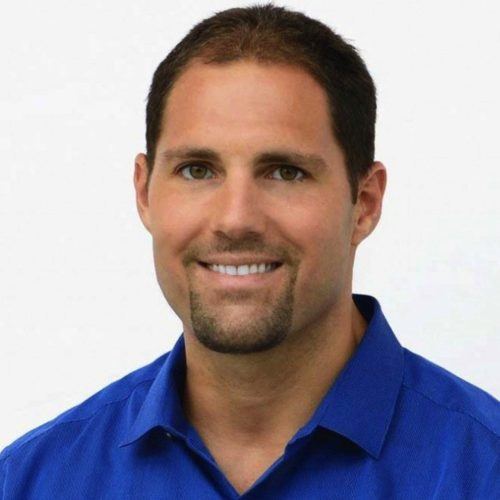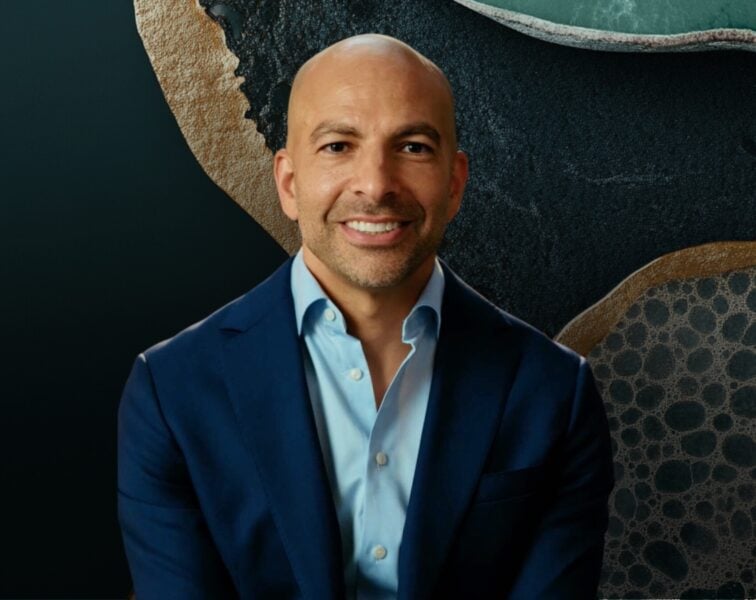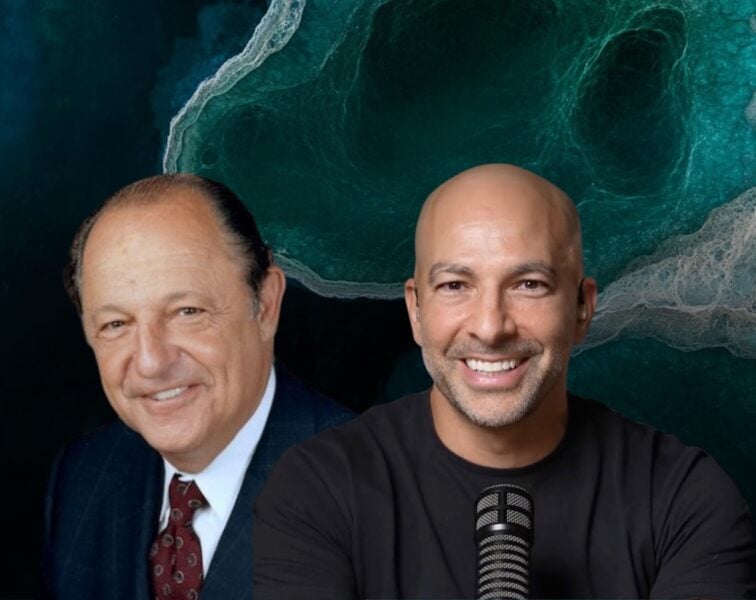Check out more content with Dom D’Agostino:
- (July 16, 2018) Dom D’Agostino, Ph.D.: ketosis, n=1, exogenous ketones, HBOT, seizures, and cancer
- (June 22, 2020) AMA with Dom D’Agostino, Ph.D., Part I of II: Ketogenic diet, exogenous ketones, and exercise
- (July 20, 2020) AMA with Dom D’Agostino, Ph.D., Part II of II: Ketosis for cancer and chronic disease, hyperbaric oxygen therapy, and the effect of ketosis on female health
Back by very popular demand for a special AMA episode, ketosis expert Dom D’Agostino joins Bob Kaplan, Peter’s Head of Research, to address many lingering questions about the ketogenic diet, exogenous ketones, and exercise for overall health. Dom also shares valuable insights from his personal experience with training, supplements, intermittent fasting, and other nutritional strategies to optimize his own health and performance. If you’re not a subscriber and listening on a podcast player, you’ll only be able to hear a preview of the AMA. If you’re a subscriber, you can now listen to this full episode on your private RSS feed or on the website show notes page. If you are not a subscriber, you can learn more about the subscriber benefits here.
We discuss:
- Dom’s recent and ongoing projects [3:00];
- Benefits of a ketogenic diet for an otherwise healthy person [7:00];
- Book recommendations for getting knowledgeable on the ketogenic diet [11:30];
- Best devices for measuring ketones [13:45];
- Genetic factors that influence how someone responds to the ketogenic diet [24:45];
- Ketogenic diet for those with the APOE e4 allele [28:15];
- Impact of long-term ketogenic diets on thyroid function [34:25];
- Low-carb and ketogenic diets for appetite control and weight management [39:00];
- Ketogenic diet and the microbiome [43:00];
- Comparing monounsaturated fat versus saturated fat on the ketogenic diet [45:55];
- Implications of long-term genetic and epigenetic adaptations to a ketogenic diet [47:45];
- Why some people see a rise in LDL-C and LDL-P when on a ketogenic diet and what they can do about it [50:15];
- Should someone with familial hypercholesterolemia consider the ketogenic diet? [55:00];
- Exogenous ketones—benefits, therapeutic uses, and ketone supplements that Dom has tested [56:45];
- Ketogenic protocols for management of traumatic brain injuries [1:06:00];
- Comparing the benefits and therapeutic uses of various medium-chain fatty acids—caprylic acid (C8), capric acid (C10), MCT oil, and coconut oil [1:08:45];
- Nootropics, caffeine, and other stimulants [1:16:15];
- Supplemental use of testosterone, DHEA, and creatine for muscle growth and performance [1:23:45];
- Impact of fasted-state training on strength and performance [1:30:15];
- Stacking exogenous ketones with MCTs for optimal effectiveness [1:33:30];
- BCAA supplements during a fast for muscle preservation [1:35:45];
- What app is Dom using for tracking his macros? [1:42:00];
- Getting enough micronutrients while on a ketogenic diet [1:47:15];
- Ideal macros for staying in ketosis while getting enough protein for strength training [1:48:15];
- Pros, cons, and ideal macros of one meal a day [1:51:15];
- Dom’s take on “carb backloading” [1:54:45];
- Dom’s take on “carb up” days for ketogenic dieters [2:01:00];
- Dom’s thoughts on the carnivore diet and the paleolithic ketogenic diet [2:05:30];
- Advantage of the ketogenic diet for extreme endurance athletes [2:10:30];
- Impact on strength, power, and performance of the adaptation period to the ketogenic diet [2:14:00];
- Fasted-state elevation in growth hormone and its impact on training [2:17:45];
- Is it possible to build muscle on a ketogenic diet? [2:23:30];
- Why Dom took a year off from weight training [2:28:00];
- What does Dom do for cardio exercise? [2:30:45];
- Protocols for hard training recovery [2:33:15];
- Dom’s personal approach to fasting, time-restricted eating, and sleep [2:35:45];
- People, books, and other resources that shaped Dom’s training and nutrition [2:38:45]; and
- More.
Get Peter’s expertise in your inbox 100% free.
Sign up to receive An Introductory Guide to Longevity by Peter Attia, weekly longevity-focused articles, and new podcast announcements.
Dom’s recent and ongoing projects [3:00]
The main objective in last 2 years: Trying to move the laboratory science into human applications
Projects:
NASA Extreme Environment Mission Operations research
- Dom was a crew member for NEEMO 22
- His wife was a crew member for NEEMO 23
- This project is evaluating the effects of hyperbaric environments, extreme environments on human physiology
- They now have an IRB protocol for cognitive function, body composition, gut microbiome, sleep, heart rate variability, and stress
Effects of ketones on cancer cachexia
- They are looking at the effects of ketones on mitigating cancer cachexia and wasting associated with metastatic cancer
- Dom just published a manuscript
Metabolic therapies for various genetic diseases
- Example being Kabuki syndrome
- They are developing ketone metabolic therapies as a means to treat these diseases not only from a metabolic perspective, but as a means to influence epigenetic pathways that may be used to treat the disease
- Ketones may be a form of metabolic “epigenetic therapy” for genetic disorders like Kabuki syndrome
Benefits of a ketogenic diet for an otherwise healthy person [7:00]
Intermittent ketosis
- The main benefit is that it promotes metabolic flexibility
- Most people are adapted to frequent carbohydrate feedings
- And they are not adapted to using fat as a major energy source during times of limited carbohydrate availability or calorie availability during periods of fasting
- Ketosis (and/or fasting) activates a genetic program that allows you to burn fat and make ketones more efficiently
- It may take some time, but you have an innate ability to be metabolically flexible, so the more you do intermittent ketosis (or fasting), the more benefits you derive from it over time
Glucose-ketone index and insulin suppression
- The thing to target would be the glucose-ketone index
- For example, you could restrict calories by 50% on a ketogenic diet and do that for six days a month and achieve, a glucose-ketone index between 1 and 2
- Insulin suppression also occurs
- Doing a restricted ketogenic diet combined that with time-restricted feeding, you’re hitting all the major drivers of the benefits that you’d get from fasting such as:
- suppressed mTOR
- suppressed insulin
- It’s also probably stimulating autophagy
*Suggestion from Dom: Once a month, try to do 5-7 days of a ketogenic diet restricting calories by 50%
Book recommendations for getting knowledgeable on the ketogenic diet [11:30]
{end of show notes preview}
Would you like access to extensive show notes and references for this podcast (and more)?
Check out this post to see an example of what the substantial show notes look like. Become a member today to get access.

Dom D'Agostino, Ph.D.
Dom is an Associate Professor at the University of South Florida where he teaches at the Morsani College of Medicine and the Department of Molecular Pharmacology and Physiology. He focuses on neuropharmacology, medical biochemistry, physiology, neuroscience, neuropharmacology. Dom holds a PhD in neuroscience and physiology. [See full bio at KetoNutrition.org]
Twitter: @DominicDAgosti2
Instagram: @dominic.dagostino.kt



